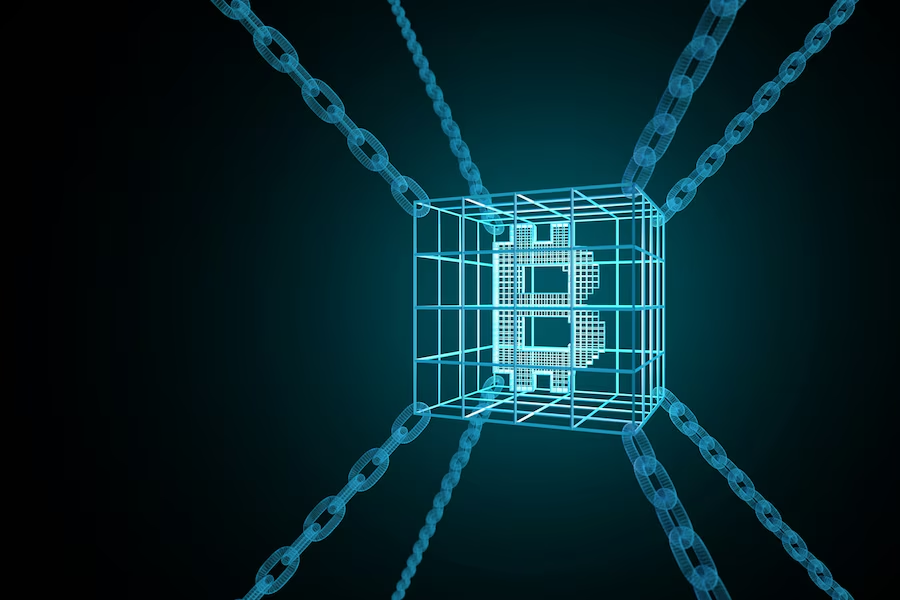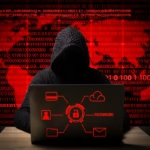Introduction
As digital dangers keep on developing in both intricacy and recurrence, organizations and people are looking for additional strong strategies to safeguard delicate information and guarantee the honesty of advanced exchanges. Blockchain, the decentralized record innovation initially created to help digital forms of money blockchain cybersecurity solutions Bitcoin, has arisen as an amazing asset in the field of online protection. Its exceptional flike eatures — decentralization, permanence, and straightforwardness — make it an optimal innovation for reinforcing online protection safeguards. This article investigates how blockchain is being utilized to improve network protection and the potential effect it will have on the fate of advanced security.
Blockchain Cybersecurity Solutions: Strengthening Digital Defenses
blockchain cybersecurity solutions set-up of network safety arrangements that improve information insurance, secure computerized exchanges, and lessen weaknesses in different frameworks. Its decentralized nature takes out weak links, making it more impervious to assaults, for example, information breaks or DDoS assaults, which frequently target concentrated frameworks.With its unchanging record, blockchain guarantees that whenever information is recorded,
it can’t be adjusted or altered, making it ideal for shielding delicate data like monetary exchanges or individual recognizable proof information. Moreover, blockchain empowers secure character the executives through decentralized personality frameworks, diminishing the gamble of wholesale fraud and unapproved access.Blockchain additionally works on the straightforwardness and discernibility of information in supply chains, forestalling misrepresentation and guaranteeing the respectability of items and administrations. Together, these blockchain-based arrangements give a hearty, diverse guard against the developing range of digital dangers.
Understanding Blockchain Technology: A Foundation for Cybersecurity
Blockchain is a conveyed record innovation that records exchanges across a decentralized organization of PCs. Each “block” in the chain contains information that is connected to the past block, making it almost difficult to change any data whenever it has been recorded. This makes a permanent record of information that can be safely shared and confirmed by numerous gatherings without the requirement for a focal power.
The decentralized idea of blockchain makes it intrinsically impervious to weak links, which is a basic weakness in conventional unified frameworks. For network safety purposes, this actually intends that there is no focal area for programmers to target, decreasing the gamble of information breaks. Moreover, blockchain’s capacity to make secure, certain, and straightforward records of exchanges guarantees that delicate information is safeguarded and sealed.
Decentralization: A Strong Defense Against Cyberattacks
One of the critical parts of blockchain innovation that makes it an appealing instrument for network safety is its decentralized nature. In customary frameworks, information is much of the time put away on focal servers, which can be powerless blockchain cybersecurity solutions against cyberattacks like Circulated Refusal of Administration (DDoS) assaults or server breaks. A fruitful assault on these unified servers can give programmers admittance to huge volumes of delicate data.
Blockchain, then again, stores information across an organization of PCs, known as hubs. This implies that regardless of whether one hub is compromised, the information is as yet safeguarded across the excess hubs, making it a lot harder for programmers to get to the framework. The decentralized idea of blockchain additionally guarantees that there is no main issue of control, implying that no single element can control or change the information without the agreement of the organization.

Enhancing Data Integrity with Blockchain’s Immutability
Information trustworthiness is urgent in network blockchain technology in security safety, particularly while managing delicate data like monetary exchanges, clinical records, or authoritative archives. Blockchain’s permanence guarantees that whenever information has been recorded on the blockchain, it can’t be adjusted or erased without the agreement of the organization members.
For network protection, this component gives a safe approach to guaranteeing that basic information stays unaltered. In the event that a programmer endeavors to change or mess with information put away on a blockchain, they would need to modify each resulting block in the chain, which is basically unimaginable because of the cryptographic safety efforts set up. This makes blockchain a priceless instrument for forestalling information altering, misrepresentation, and unapproved adjustments to delicate data.
Blockchain for Secure Identity Management and Authentication
Character the executives is a critical test in network protection, as customary frameworks frequently depend on unified data sets to store individual data, for example, usernames, passwords, and biometric information. These incorporated frameworks are practical objectives for programmers who try to take personality qualifications for fake purposes.
Blockchain can resolve this issue by empowering decentralized character the executives. Rather than putting away private data secure blockchain systems in a solitary, unified area, blockchain permits people to control their own character information, which is safely put away and confirmed across the organization. Using computerized wallets and blockchain-based characters, people can give or repudiate blockchain technology in security admittance to their own data without depending on a focal power. This lessens the gamble of wholesale fraud and information breaks, as programmers would need to think twice about hubs across the organization to get to personality data.
Blockchain and Secure Communication: Protecting Data Transmission
In an undeniably associated world, secure correspondence channels are fundamental for safeguarding delicate data from snoopping, man-in-the-center assaults, and information breaks. Customary correspondence frameworks frequently depend on incorporated servers to work with the transmission of information, which makes weaknesses that can be taken advantage of by cybercriminals.
Blockchain can upgrade correspondence security by making decentralized, encoded channels for information transmission. By utilizing blockchain’s cryptographic highlights, like public-key framework (PKI), information can be safely sent between parties with start to finish encryption. Also, the straightforwardness of blockchain blockchain cybersecurity solutions guarantees that all gatherings associated with the correspondence can check the trustworthiness of the message, forestalling any altering or change during transmission. This is especially valuable for enterprises that require secure information trade, like medical services, money, and government.
Blockchain for Supply Chain Security and Transparency
The trustworthiness of information in supply chains is basic for guaranteeing the credibility of products, forestalling misrepresentation, and keeping up with administrative consistence. Cybercriminals can take advantage of shortcomings secure blockchain systems in the store network to embed fake items, modify shipment data, or control stock records. Customary store network frameworks frequently depend on various go-betweens and concentrated data sets, which make points of weakness.
Blockchain can fundamentally further develop store secure blockchain systems by giving a straightforward, changeless record of each and every exchange or development of merchandise. Each move toward the store network can be recorded on the blockchain, making a discernible and carefully designed history of the item from beginning to conveyance. This straightforwardness guarantees that all gatherings in the store network — makers, providers, wholesalers, and customers — can check the realness and beginning of items, diminishing the gamble of misrepresentation and forging.

Blockchain for Enhancing Smart Contracts and Automated Security
Shrewd agreements are self-executing contracts with the details of the understanding straightforwardly composed into lines of code. These agreements are put away and executed on the blockchain, and they naturally authorize the details of the arrangement once predefined conditions are met. For instance, a shrewd agreement could deliver installment for a help once the assistance is finished, without the requirement for a mediator.
In network safety, brilliant agreements can be utilized to mechanize security processes and guarantee consistence with security arrangements. For instance, a savvy agreement could consequently look at the trustworthiness of a framework or implement an information insurance strategy. Since brilliant agreements are executed on the blockchain, they are impervious to altering, making them a protected and solid instrument for robotizing network safety undertakings. Moreover, shrewd agreements can be utilized to get advanced exchanges, decreasing the gamble of extortion or information control.
Future Prospects: Blockchain as a Cornerstone for Next-Generation Cybersecurity
As digital dangers keep on turning out to be more modern, blockchain innovation is ready to assume a focal part coming soon for network protection secure blockchain systems. While blockchain is certainly not a one-size-fits-all arrangement, its decentralized, permanent, and straightforward elements make it an optimal device for getting touchy information, further developing character the executives, and improving the honesty of computerized exchanges.
Before long, we can hope to see more far reaching reception of blockchain in network protection, especially as associations try to battle arising dangers like ransomware, phishing assaults, and information breaks. As blockchain innovation advances and turns out to be more versatile, it very well may be coordinated with other arising advances like man-made reasoning (computer based intelligence) and the Web of Things (IoT) to make more hearty, insightful security frameworks. By joining the qualities of blockchain with other network safety advancements, organizations can construct safer, strong computerized foundations that are better prepared to deal with the difficulties representing things to come.
Conclusion
Blockchain innovation can possibly change network safety by offering a decentralized, straightforward, and unchanging structure for getting delicate information and computerized exchanges. Its capacity to upgrade information honesty, secure correspondence, forestall extortion, and further develop personality the board makes it an integral asset for battling current digital dangers. As blockchain proceeds blockchain cybersecurity solutions to develop and acquire reception, it will assume an undeniably significant part in the advancement of cutting edge network safety frameworks. By utilizing blockchain close by other arising innovations, organizations and people can fundamentally work on their safeguards against cyberattacks, making a more secure and safer computerized scene for what’s in store.


